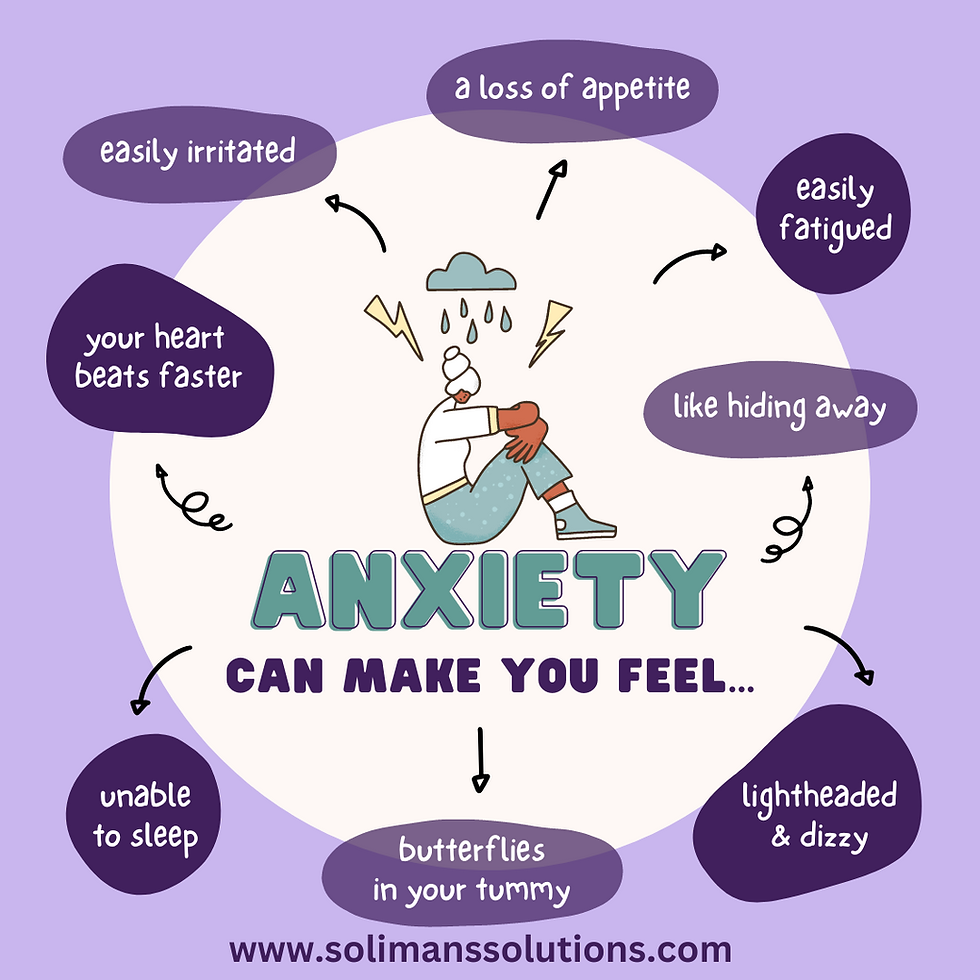Understanding the Positive Impacts of Hypnotherapy
- Vicci Soliman

- Sep 29, 2025
- 3 min read
Hypnotherapy is a therapeutic technique that uses guided relaxation, intense concentration, and focused attention to achieve a heightened state of awareness, often called a trance. This state allows individuals to explore thoughts, feelings, and memories that may be hidden from their conscious mind. Over recent years, hypnotherapy has gained recognition for its ability to support mental and physical well-being. This article explores the positive impacts of hypnotherapy, providing practical insights and examples to help you understand how it can be a valuable tool for personal growth and healing.
What Is Hypnotherapy and How Does It Work?
Hypnotherapy involves a trained therapist guiding a person into a trance-like state. In this state, the mind becomes more open to suggestions, which can help change negative patterns, reduce stress, and promote healing. The process is safe and natural, and the individual remains in control throughout the session.
During hypnotherapy, the therapist may use verbal cues, imagery, or relaxation techniques to help the client access their subconscious mind. This access allows for the identification and resolution of issues such as anxiety, phobias, or bad habits. The therapy can be tailored to suit individual needs, making it a flexible and effective approach.
Practical Example
Imagine someone struggling with smoking cessation. Through hypnotherapy, the therapist might help the person visualise themselves as a non-smoker, reinforcing positive behaviours and reducing cravings. This mental rehearsal can significantly increase the chances of quitting successfully.

Exploring the Hypnotherapy Benefits
The benefits of hypnotherapy are wide-ranging and supported by both anecdotal evidence and scientific research. Here are some of the key positive impacts:
1. Stress and Anxiety Reduction
Hypnotherapy helps calm the mind and body, reducing stress hormones and promoting relaxation. It can teach coping mechanisms to manage anxiety in daily life.
2. Pain Management
People suffering from chronic pain conditions have found relief through hypnotherapy. It can alter the perception of pain and improve quality of life.
3. Behavioural Changes
Hypnotherapy is effective in addressing habits such as smoking, overeating, or nail-biting by targeting the subconscious triggers behind these behaviours.
4. Improved Sleep
Many individuals experience better sleep patterns after hypnotherapy sessions, as it helps relax the mind and reduce insomnia.
5. Enhanced Self-Confidence
By addressing limiting beliefs and negative self-talk, hypnotherapy can boost self-esteem and confidence.
Actionable Recommendations
Seek a qualified hypnotherapist: Ensure the practitioner is certified and experienced.
Set clear goals: Know what you want to achieve before starting therapy.
Be open and patient: Results may take time and require multiple sessions.
Combine with other therapies: Hypnotherapy can complement counselling or medical treatments.

How Has Hypnotherapy Changed My Life?
Many people who have experienced hypnotherapy report profound changes in their lives. For example, individuals dealing with anxiety often find that hypnotherapy provides tools to manage panic attacks and reduce overall stress levels. Others have successfully overcome fears, such as public speaking or flying, which previously limited their opportunities.
One person shared how hypnotherapy helped them break free from emotional eating. By uncovering the subconscious reasons behind their behaviour, they were able to develop healthier habits and improve their relationship with food.
These personal stories highlight the transformative power of hypnotherapy. It is not just about symptom relief but about creating lasting change by addressing root causes.
Tips for Maximising Personal Benefits
Maintain a journal: Track your progress and feelings after each session.
Practice self-hypnosis: Learn techniques to reinforce positive changes between sessions.
Stay committed: Consistency is key to achieving long-term results.

Common Misconceptions About Hypnotherapy
Despite its growing popularity, hypnotherapy is often misunderstood. Here are some common myths debunked:
Myth 1: Hypnotherapy is mind control
Reality: You remain fully aware and in control during sessions.
Myth 2: Only weak-minded people can be hypnotised
Reality: Hypnosis requires focus and willingness, not weakness.
Myth 3: Hypnotherapy can make you reveal secrets
Reality: You will not share anything you do not want to.
Understanding these facts can help reduce fear and hesitation about trying hypnotherapy.
Integrating Hypnotherapy Into Your Wellness Routine
Hypnotherapy can be a valuable addition to your overall wellness plan. Here are some ways to integrate it effectively:
Combine with mindfulness practices: Meditation and hypnotherapy complement each other well.
Use for goal setting: Hypnotherapy can enhance motivation and focus.
Address specific issues: Target areas like stress, sleep, or habits for focused improvement.
By incorporating hypnotherapy into your routine, you can experience a holistic approach to health and well-being.
Hypnotherapy offers a unique and powerful way to access the subconscious mind and promote positive change. Whether you are seeking relief from stress, help with behavioural changes, or a boost in confidence, hypnotherapy can provide practical tools and lasting benefits. Exploring this therapy with an open mind and clear goals can lead to meaningful improvements in your life. For more information on how hypnotherapy can help you, consider visiting a professional who specialises in this field.




Comments